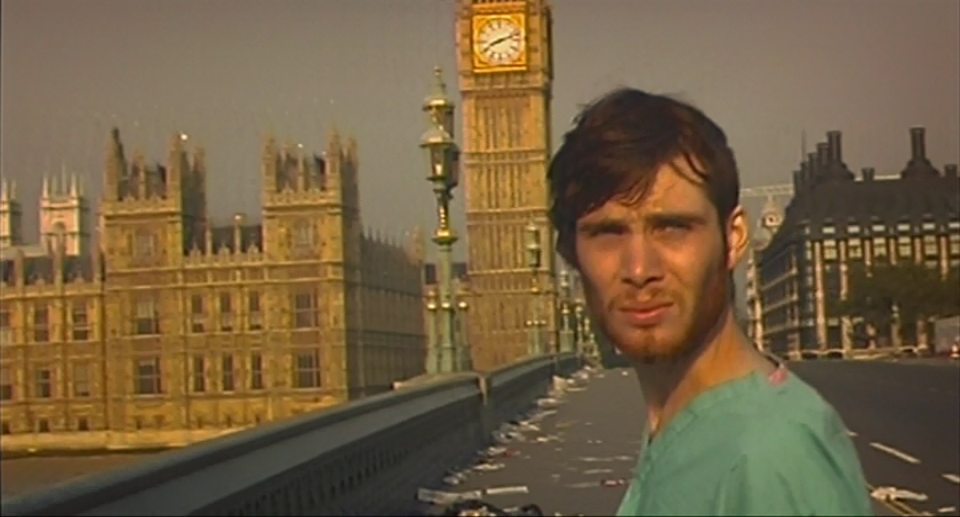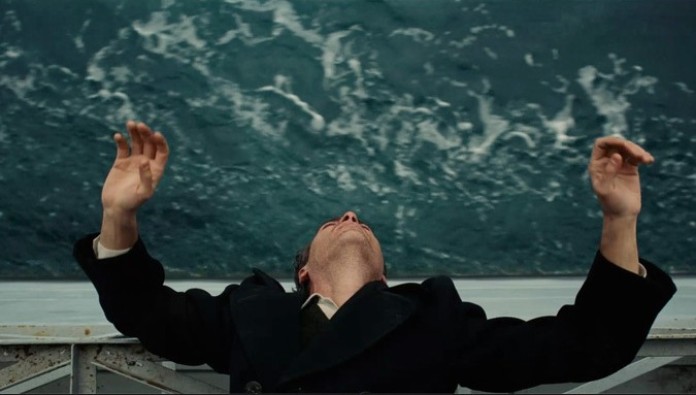
Like other film festivals that have had to cancel their “real world” event due to the pandemic, Tribeca is keeping the spirit and mission of their programming alive by devising inventive “virtual” solutions for carrying on. They are offering quarantined film fans access to select programming curated for online viewing through April 26 (so you are still good to go through this weekend). From the Festival’s April 3rd press release:
…we wanted to move as fast as possible to bring some of our programming from the festival to audiences worldwide. Tribeca Immersive’s audience-facing Cinema360 (in partnership with Oculus) features 15 VR films, curated into four 30-40 minute programs. The public will be able to access Cinema360 via Oculus TV, for Oculus Go and Oculus Quest. The millions of people who own Oculus headsets will be able to participate in this unique programming from home. Tribeca is one of the first and only festivals to introduce this curated immersive experience to consumers.
[…] “As human beings, we are navigating uncharted waters,” said Tribeca Enterprises and Tribeca Film Festival Co-Founder and CEO Jane Rosenthal. “While we cannot gather in person to lock arms, laugh, and cry, it’s important for us to stay socially and spiritually connected. Tribeca is about resiliency, and we fiercely believe in the power of artists to bring us together. We were founded after the devastation of 9/11 and it’s in our DNA to bring communities together through the arts.”
In support of the filmmakers, Tribeca has also provided accredited press access to some of this year’s festival selections. I’m happy to report I was granted access, so I’m sharing some festival highlights with you…even though I’m not really “there” (and frankly I haven’t been “all there” for years anyway…but longtime readers already know that). Hopefully, these films will be coming soon to a theater (or streaming platform) near you!

Ainu Mosir (***) – This drama from writer-director Takeshi Fukunaga offers a rare glimpse into Japan’s Ainu culture (historically marginalized, the Ainu people were not officially acknowledged as “indigenous” by that country’s government until it passed a bipartisan, non-binding resolution in 2008 that also urged an end to discrimination against the group).
14-year-old Kanto (Kanto Shimokura) lives with his mother in an Ainu village with a tourist-based economy. Kanto’s mother encourages him to take counsel from a long-time friend of his late father who strongly believes in passing on the cultural traditions of the Ainu to its young people. When the family friend invites the teen to join him in clandestine preparations for a sacrificial ceremony certain to stir up discord within the community, Kanto must navigate a way to embrace his heritage and honor his father’s memory while reconciling with modern mores. Sensitively directed and acted.
Related reviews: Birds of Passage, Angry Inuk, Tibet in Song

Banksy Most Wanted (**½)– Almost everybody knows what internationally celebrated guerilla street artist Banksy does, but despite years of investigative journalism, amateur-to-professional sleuthing and “outings”…nobody but he/she/themselves knows who the real McCoy(s) is/are. Co-directors Aurélia Rouvier and Seamus Haley give it a whirl in their slickly made but ultimately frustrating documentary. Promising leads are followed, but no Big Reveals. The best parts of this globe-trotting quest are the glimpses at Banksy’s brilliant work, which continues to defy logic as to how he/she/they manage to pull it off while cunningly remaining hidden in plain sight. To be fair, the directors had a tough act to follow: Banksy’s own meta-documentary Exit Through the Gift Shop (2010).
Related reviews: Art and Craft, My Kid Could Paint That

Call Your Mother (**½)– Why are some people inherently “funny”? Funny, as in-other people will pay to watch them crack wise in front of a brick wall? Where does a “sense of humor” come from…nature or nurture? In this breezy (if lightweight) documentary, co-directors Heidi Ewing and Rachel Grady suggest it is …your mom. And they mean that in a nice way-as demonstrated by comics Louie Anderson, Tig Notaro, Kristen Schaal, Bobby Lee, Judy Gold, David Spade, Rachel Feinstein, et.al. who share anecdotes about (in some cases, camera time with) their moms. Initially fun and even endearing, but ultimately eschews any real insight for seeking 50 ways to say “My mom is such a card!”
Related reviews: When Comedy Went to School, Can We Take a Joke?

Love Spreads (***½) – I’m a sucker for stories about the creative process, because as far as I’m concerned, that’s what separates us from the animals (even if my “inner Douglas Adams” persists in raising the possibility that “there’s an infinite number of monkeys outside who want to talk to us about this script for Hamlet they’ve worked out.”). Welsh writer-director Jamie Adams’ dramedy is right in that wheelhouse.
“Glass Heart” is an all-female rock band who have holed up Led Zep style in an isolated country cottage to record a follow-up to their well-received debut album. Everyone is raring to go, the record company is bankrolling the sessions, and the only thing missing is…some new songs. The pressure has fallen on lead singer and primary songwriter Kelly (Alia Shawcat) to cough them up, pronto. Unfortunately, the dreaded “sophomore curse” has landed squarely on her shoulders, and she is completely blocked. The inevitable tensions and ego clashes arise as her three band mates and manager struggle to stay sane as Kelly awaits the Muse. It’s a little bit Spinal Tap, with a dash of Love and Mercy-bolstered by a smart script, wonderful performances, and catchy original songs (in the power-pop vein).
Related reviews: Love and Mercy, The Runaways, Tokyo Pop, God Help the Girl, We Are the Best, The Gits, Top 11 Rock Musicals,

Pacified (***½) – The impoverished, densely populated favelas of Rio and the volatile political climate of contemporary Brazil provide a compelling backdrop for writer- director Paxton Winters’ crime drama. Sort of a cross between The King of New York and City of God, the story takes place during the height of the strong-arm “pacification” measures conducted by the government to “clean up” the favelas in preparation for the 2016 Rio Olympics.
The narrative centers on the relationship between 13-year old Tati (Cassia Gil), her single (and drug-addicted) mother Andrea (Débora Nascimento), and Jaca (Bukassa Kabengele), the former “godfather” of the neighborhood who has just been released from prison. Jaca, who has mellowed while in the joint, is nonetheless chagrined to learn that the young protégé he left in charge has essentially declared himself boss, become a neighborhood terror and now views Jaca as a threat to his regime. Tight direction, excellent performances and gorgeous cinematography by Laura Merians.
Related reviews: The Edge of Democracy

P.S. Burn This Letter Please (***) – Can we dish? I admit that going into this documentary, what I knew about the history of the 50’s drag scene in New York City wouldn’t have filled a flea’s codpiece. But some 100-odd minutes and several fabulously accessorized costume changes later…my codpiece was full. That did not come out sounding right. Suffice it to say Michael Seilgman and Jennifer Tiexiera’s Ken Burns-style documentary is an eye-opener. Inspired by a box of letters found in an abandoned storage unit, the film is an intimate history of a unique art form that managed to persevere and thrive during an era not too long ago when the LGBTQ community was relentlessly persecuted and forced to live in the shadows.
Related reviews: Beautiful Darling: The Life and Times of Candy Darling, Stonewall Uprising

Somebody Up There Likes Me (***) – This glossy portrait of Ronnie Wood from Eagle Rock Films looks back on the venerable British rocker’s career and catches up with his current life and interests. Viable and animated as ever, the seemingly indestructible Wood sits down with director Mike Figgis (Stormy Monday, The Browning Version, Leaving Las Vegas) and chats about everything from his 45 years with the Stones, early days with his first band The Birds, his creative association with Rod Stewart (in both the Jeff Beck Group and The Faces) to his “second career” as an artist and his longtime struggle with drugs and drink.
The amiable Wood is quite the raconteur and comes off as a fun bloke to hang out with. I would have loved more footage of the Jeff Beck Group and The Faces, but that is a personal problem. Also, on hand: Mick Jagger, Rod Stewart, Keith Richards, Charlie Watts and Wood’s wife Sally. This film is catnip for classic rock aficionados.
Related reviews: Too Rolling Stoned: A Top 5 List, Muscle Shoals, David Crosby: Remember My Name, Gimme Danger
For info on Cinema360 access and more, check out the Tribeca Film Festival website.
Hot tip: Here’s a shortcut to TFF 2020 shorts that you can watch right now for free!
More reviews at Den of Cinema
—Dennis Hartley







































